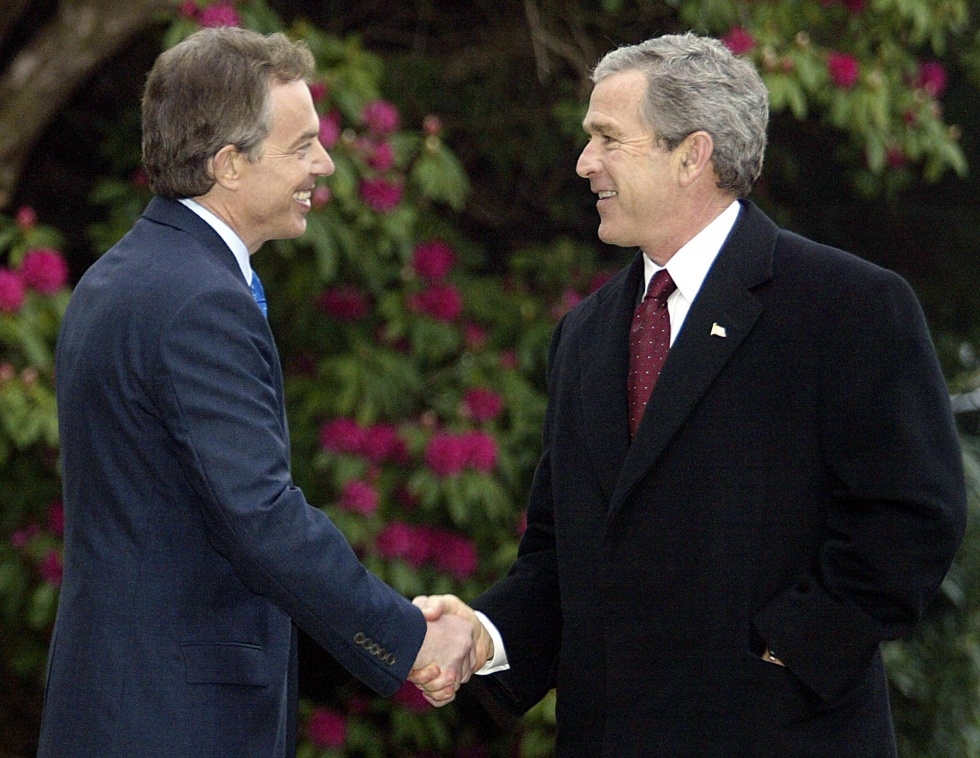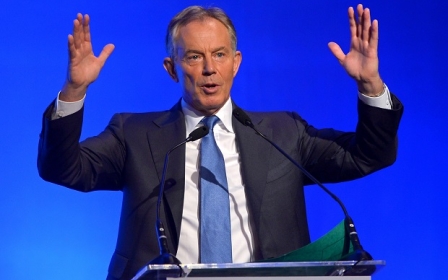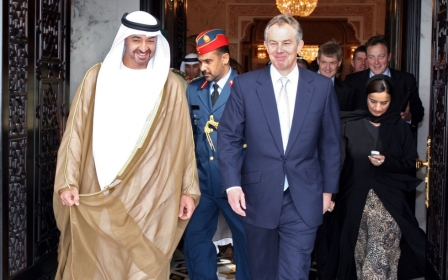Tony Blair denies delaying release of UK Iraq war inquiry

A further delay to a report into Britain's role in the Iraq war sparked angry claims of a cover-up on Wednesday, illustrating the lingering controversy over a conflict in which an estimated minimum of 150,000 Iraqis and 179 British soldiers were killed.
Six years after the inquiry started and 12 years on from the beginning of the war itself, its chairman John Chilcot said there was "no realistic prospect" of publication before May's general election.
The delay is linked to a process in which individuals such as former prime minister Tony Blair, who led Britain into the 2003 conflict, are given the chance to respond to criticism of them in the report.
Blair, speaking from the Swiss ski resort of Davos where he is attending the World Economic Forum, denied that he was the reason for the hold-up and said such speculation was politically motivated.
"This is completely wrong. The fact is that neither myself nor, as far as I am aware, any of the people who are the principal witnesses to this inquiry are the reasons for this delay," Blair told broadcaster BBC.
"For people like myself, when this inquiry finally comes out, it gives me also frankly an opportunity to come out and say 'this is why I did what I did', 'this is why I believed it was the right thing to do'."
Part of the hold-up has been put down to a process involving those criticised in the report being given a chance to respond before publication.
UK political blogger Guido Fawkes – a pseudonym – cited “sources familiar with the situation” as having “suggested that whilst Blair has received his warning letter from Sir John Chilcot, he has yet to respond as [he] is currently still seeking legal advice before doing so.”
The delayed report highlights how Britain's involvement in Iraq - particularly questions over whether Blair's government "sexed up" a dossier on Iraq's weapons of mass destruction to make the case for war - remains subject to heated debate.
The Chilcot inquiry was set up in 2009 by Blair's successor as prime minister, Gordon Brown, and was originally due to report within a year.
The row is unlikely to influence the outcome of this year's knife-edge general election as Prime Minister David Cameron's Conservatives were in opposition at the time, while Blair and other senior members of his Labour government are no longer in frontline politics.
Blair, Bush notes to be published
Facing repeated questions from angry lawmakers, Cameron played down the controversy at his weekly question and answer session in parliament, saying there was "no mystery" in why the report was taking so long.
"I don't believe from what I understand that anyone is trying to dodge this report or put off this report," he added.
But taking a much firmer tone, his deputy Nick Clegg wrote in a letter to Chilcot that the public would find the latest delay "incomprehensible".
"There is a real danger the public will assume the report is being 'sexed down' by individuals rebutting criticisms put to them by the inquiry, whether that is the case or not," he added.
Rose Gentle, whose son Gordon was killed fighting in Iraq in 2004, told the BBC that she and other families were "really frustrated" that it was taking so long.
"We just feel constantly let down. We can't get over something like this until we find out," she added.
There has been some progress in the report. A previous sticking point around whether notes from Blair to then US president George W Bush would be published has been resolved, it emerged Wednesday.
Chilcot said that 29 of these would now be released with the final report, "subject to a very small number of essential redactions".
Members of parliament are expected to hold a debate in the House of Commons on the issue next week.
Speaking to the Guardian newspaper, David Davis, a senior Conservative MP leading the push for a debate, said the delay was "not good enough".
"This is for the whole country to understand why we made a terrible mistake in Iraq."
Middle East Eye propose une couverture et une analyse indépendantes et incomparables du Moyen-Orient, de l’Afrique du Nord et d’autres régions du monde. Pour en savoir plus sur la reprise de ce contenu et les frais qui s’appliquent, veuillez remplir ce formulaire [en anglais]. Pour en savoir plus sur MEE, cliquez ici [en anglais].




